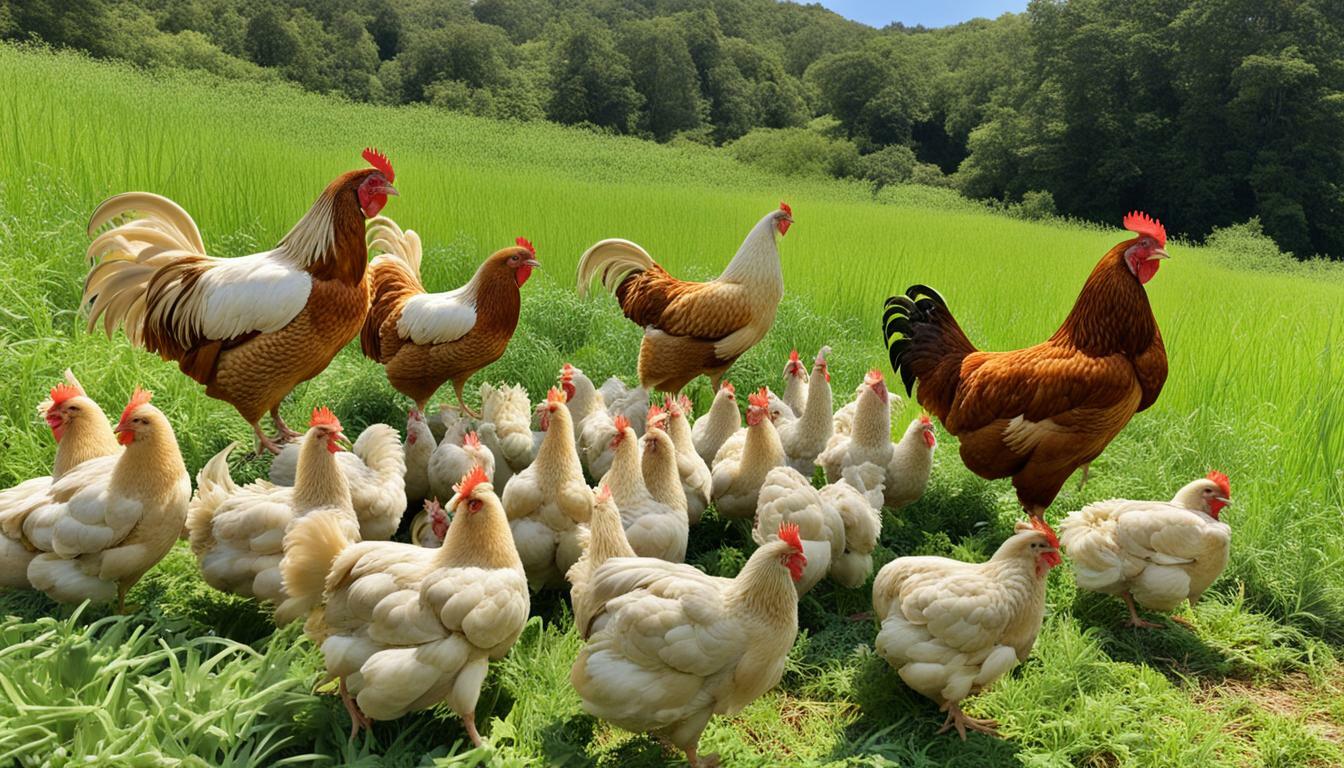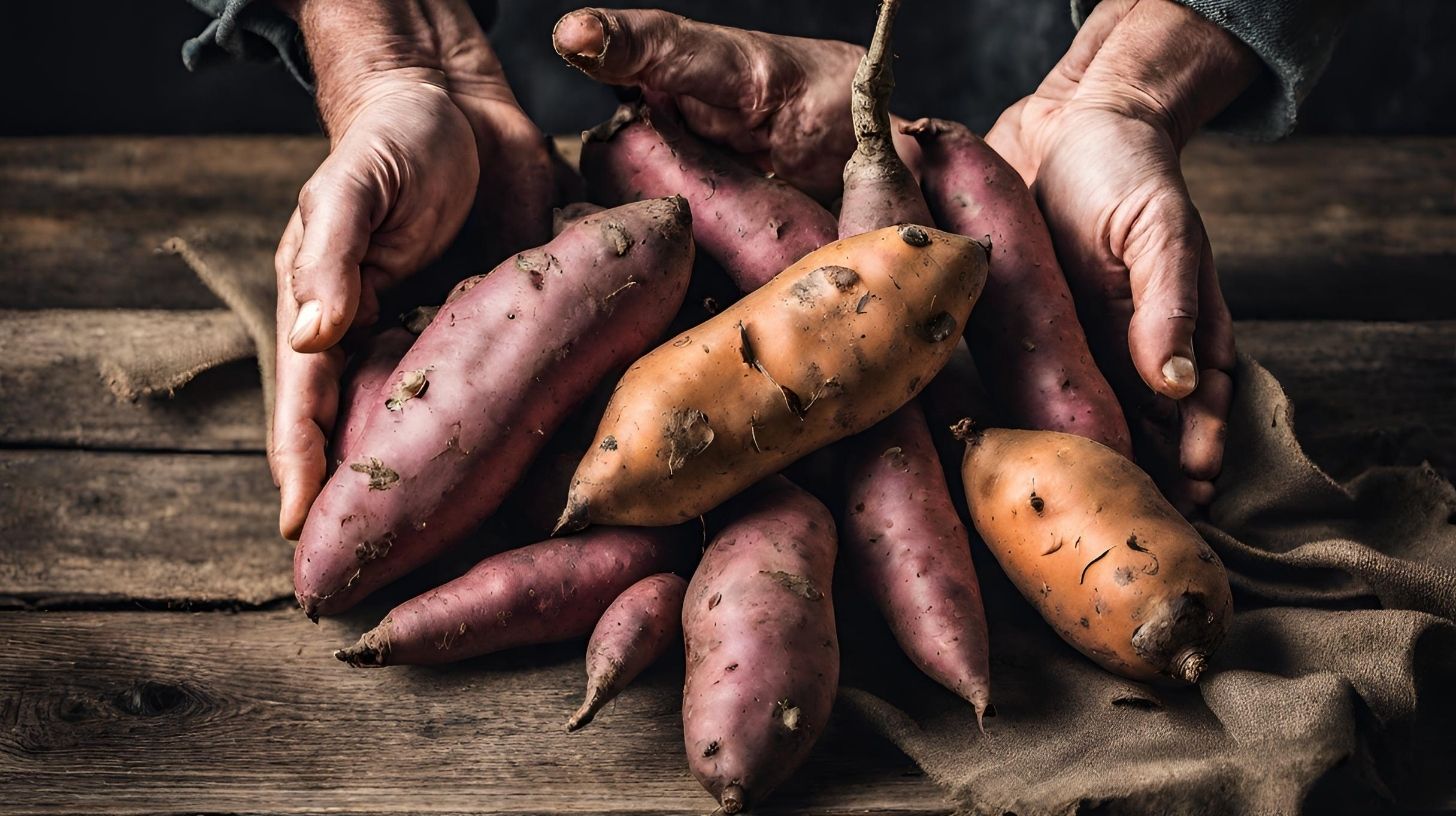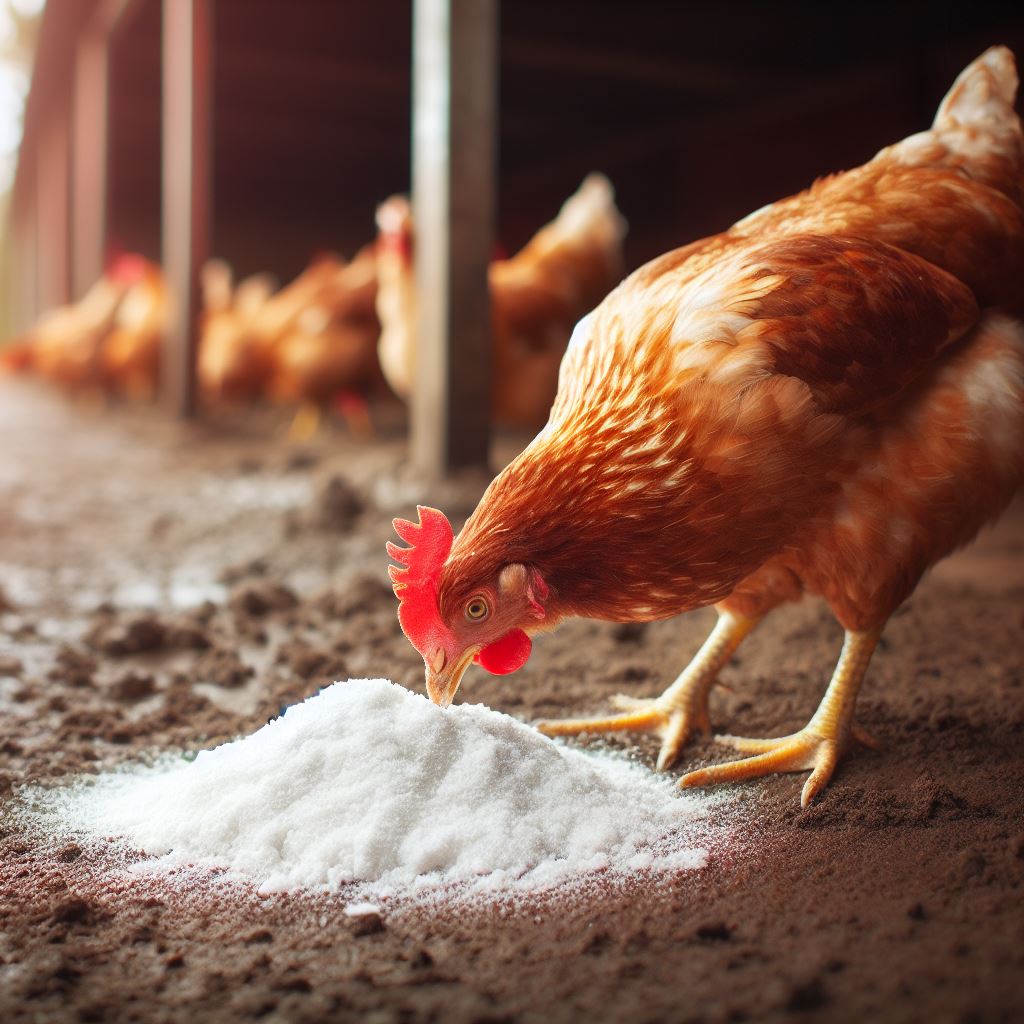Can Chickens Eat Artichokes? Facts And Feeding Tips Revealed

Table of content:
- Can Chickens Eat Artichoke Leaves?
- What About Artichoke Stems?
- Are Artichokes Good for Chickens?
- Do Chickens Like The Taste of Artichokes?
- What Parts of Artichokes Can Chickens Eat?
- Are Raw Artichokes Safe for Chickens to Eat?
- Can Too Many Artichokes Upset a Chicken’s Stomach?
- Are Artichokes Good for Egg-Laying Chickens?
- How Much Artichoke Can Chickens Eat At One Time?
- Can Chickens Eat Cooked Artichokes?
- Are the Chokes in Artichokes Safe for Chickens?
- Can Chickens Eat Artichoke Plants from the Garden?
- How to Prepare Artichokes for Chickens
- Benefits of Feeding Artichokes to Chickens
- Risks of Overfeeding Artichokes to Chickens
- Final Thoughts
Chickens can eat all parts of an artichoke including the leaves, stems, and heart. Artichokes provide many nutrients and can be a healthy treat for chickens in moderation. However, there are some precautions to take when feeding artichokes to chickens.
Can Chickens Eat Artichoke Leaves?
The leaves of the artichoke are entirely edible for chickens. The leaves contain fiber, vitamins, minerals, and antioxidants. Chickens will enjoy pecking at and eating the tender inner leaves of the artichoke.
The outer tougher leaves can also be fed to chickens but they may not eat the whole thing. Scraps and remnants of these outer leaves make great additions to the compost for the garden which provides more fresh produce for your flock.
What About Artichoke Stems?
The stems or stalks of artichokes can also be fed to chickens. The stems are very fibrous which can actually help promote healthy digestion and gut health in chickens.
The stems also contain valuable nutrients like vitamin C, vitamin K, folate, and magnesium. Chickens will peck away at the pulpy flesh on the more tender parts of the stems. The remaining stem fibers pass through their digestive system aiding in digestion.
Are Artichokes Good for Chickens?
Artichokes can be a beneficial treat for backyard chickens. In addition to vitamins, artichokes contain minerals like copper, iron, potassium, magnesium, and phosphorus.
Artichokes also contain inulin which is a prebiotic fiber that supports gut bacteria and helps digestion. The antioxidants lutein and cynarin found in artichokes support liver and kidney health in chickens.
So in moderation, different parts of artichokes can provide valuable nutrients and health benefits to chickens. They can be a safe, healthy supplement to a balanced chicken diet.
Do Chickens Like The Taste of Artichokes?
In general, most chickens enjoy the flavor of artichokes and will eat the leaves, stems, and hearts eagerly. Chickens with more varied diets and exposure to lots of different produce tend to be more likely to try new foods like artichokes.
The layered, fibrous nature of artichoke leaves provides opportunities for chickens to scratch and peck which are natural chicken behaviors. This pecking instinct means most chickens readily take interest in unknown leafy greens like artichokes introduced into their enclosures.
Some finicky chickens may ignore artichokes at first. Try rubbing a bit of olive oil on the leaves or mixing some scrambled eggs into the artichoke to entice the chicken to take its first taste. This can help to introduce unfamiliar flavors and textures.
What Parts of Artichokes Can Chickens Eat?
Chickens can eat all parts of the artichoke plant including the leaves, heart, and stem. Different parts offer different nutritional benefits.
- The leaves provide fiber, minerals like magnesium and potassium as well as antioxidants. Chickens enjoy pecking at the tender inner leaves.
- The heart is high in folate, phosphorus, and vitamins C and K. Chickens will eat the entire heart raw if you cut it up for them.
- The stem has lots of fiber for healthy digestion and nutrients like vitamin C and vitamin K. Chickens will pick at the softer fleshy parts.
Even the stringy remnants of outer leaves or stems that chickens don’t eat can be composted to fertilize the garden and produce more artichokes and fresh treats!
Are Raw Artichokes Safe for Chickens to Eat?
Raw fresh artichokes are entirely safe and healthy for chickens to consume. The leaves, stems, and hearts all can be fed raw to backyard chickens.
In fact, raw artichokes retain more of their vitamin and antioxidant content compared to cooking. The natural enzymes are also preserved when artichokes are fed raw.
The fibrous nature of raw artichoke leaves and stems provide beneficial gut stimulation and digestion optimization for chickens. This makes raw artichokes an excellent supplemental feed.
Of course, proper food safety precautions should be followed when collecting or preparing any raw produce for backyard poultry. Wash thoroughly and remove any damaged or spoiled parts before feeding.
Can Too Many Artichokes Upset a Chicken’s Stomach?
While artichokes are very healthy, feeding too many may cause digestive upset in chickens. Artichokes contain inulin and fiber which, in large amounts, can cause loose droppings and diarrhea.
The high fiber content found in the leaves and stems acts as a prebiotic, which is beneficial. But excessive amounts can overstimulate the gut of a chicken.
Moderating the portion size of artichokes fed to chickens is key. Treat artichokes as an occasional supplement to a balanced diet, not the main food source.
Monitor your flock’s manure – diarrhea could indicate too many fibrous veggies like artichokes. In that case, reduce the amount you feed.
Are Artichokes Good for Egg-Laying Chickens?
Artichokes can be an excellent supplement to layer feed for egg-laying hens. The inulin fiber acts as a prebiotic to support digestive health and the gut microbiome in layers.
The minerals and vitamins in artichokes also provide key nutrients for egg production. Phosphorus and magnesium support egg shell strength. Folate, niacin, riboflavin, and vitamins A, C, E, and K all contribute to nutrient-dense eggs with bright orange yolks.
The antioxidants lutein and zeaxanthin found in artichokes also get deposited into egg yolks making them even richer. So offering some artichoke leaves, stems, or hearts 1-2 times a week helps support peak production of quality eggs.
How Much Artichoke Can Chickens Eat At One Time?
When introducing artichokes as a supplemental feed, moderation is key. Offering 1-2 artichokes per chicken once or twice a week is plenty.
The portion size fed depends partly on the age and size of your chickens. Larger breeds can handle more compared to bantam chickens.
For full sized chickens, cut a fresh artichoke into quarters and offer 1-2 quarters per bird. Monitor to see if they eat all of the portions.
For younger or smaller breeds, cut an artichoke into eighths. Feed 1-2 eighths per chick, adjusting amounts based on consumption.
Gradually increase portions if the flock eagerly consumes the artichokes and their droppings look normal. Reduce amounts if any birds get loose stools.
Can Chickens Eat Cooked Artichokes?
While raw is healthiest, chickens can eat cooked artichokes as well. Boiled or steamed artichoke hearts, for example, make a soft treat chickens will enjoy.
Avoid frying or seasoning artichokes with any salt, butter, or oils. Stick to plain cooked preparations.
Light cooking can help tenderize the fibers in the stems and leaves of artichokes. This may entice finicky chickens to try them.
Just be sure cooked artichokes have cooled completely before feeding to your flock. Never feed chickens hot or warm food as it can cause crop burns.
Are the Chokes in Artichokes Safe for Chickens?
The fuzzy or thistle-like “choke” of the artichoke flower should be removed before feeding the hearts to chickens.
Chickens have small throats so the choke hairs can get lodged or cause scratching, which may injure a chicken’s crop lining.
Snip or scrape out the fibrous choke portion of the artichoke before feeding the heart raw or cooked. Other parts like the leaves and stems are fine to feed whole.
Checking for and removing chokes anytime an artichoke heart is fed reduces risks. Your chickens will enjoy the remainder of the tender artichoke heart.
Can Chickens Eat Artichoke Plants from the Garden?
If you grow artichokes in your vegetable garden, your backyard chickens can enjoy the bounty of fresh leaves, stems and hearts right from the plant.
Allow your flock to free-range and forage in the garden area around the artichoke plants. They will naturally pick at the lower leaves and stems they can reach.
You can also cut entire artichoke plants and hang them in the coop or run for your chickens to nibble as desired. This mimics their natural foraging instinct.
Just be sure no chemicals have been applied to the plants and that yard pests haven’t damaged them before allowing your chickens access.
How to Prepare Artichokes for Chickens
The easiest way to prepare artichokes for your flock is to hang them whole inside their enclosed run or coop area. Your chickens will naturally pick at the parts they want.
You can also cut artichokes into quarters or eighths. Scrape out the choke from hearts. Then scatter the raw pieces in their enclosure for chickens to peck at.
For cooked artichokes, steam or boil heart quarters until tender. Allow to cool fully then serve in a dish in their run.
Chopped cooked artichokes can also be mixed into a homemade treat or scratch mix along with eggs, oats, seeds or grains for a nutritious boost.
Benefits of Feeding Artichokes to Chickens
Beyond being a tasty treat, there are many benefits to feeding artichokes to backyard chickens in moderation:
- Prebiotic fiber for gut health and improved digestion
- Minerals for bone strength and egg shell quality
- Antioxidants for immune support and disease prevention
- Vitamins for energy and vitality
- Encourages natural foraging behaviors and prevents boredom
- Provides mental enrichment and environmental stimulation
As a supplement to a balanced feed ration, parts of the artichoke plant offer a nutritious, fiber-rich, and safe treat for your flock. They add diversity to your chickens’ diet for improved health.
Risks of Overfeeding Artichokes to Chickens
While artichokes have many benefits, overfeeding does come with some risks:
- Excessive fiber can impact digestion, causing loose droppings or diarrhea
- Too much vitamin K from leaves may impact blood clotting
- Overconsumption may lead to weight gain
- High oxalic acid content may impair calcium absorption
- Chokes left in hearts could cause crop/throat irritation
Moderating the amount of artichokes fed minimizes these risks. Offer small portions once or twice a week as an occasional treat alongside their normal feed.
Final Thoughts
Incorporating parts of the artichoke plant into a backyard flock’s diet can provide valuable nutrition, enrichment, and variety. Chickens can eat all parts of the artichoke in moderation.
Focus on raw, unseasoned preparations for the most health benefits. Cooked artichokes are also fine as an occasional treat.
Small portions of leaves, stems, and hearts 1-2 times per week is plenty. Monitor your chickens’ health and manure to ensure they tolerate artichokes well.
Follow basic food safety and remove damaged/rotten parts before feeding. With some common sense precautions, artichokes make a nutritious, fiber-rich supplement to a balanced chicken diet.
Welcome. I’m Adreena Shanum, the proud owner of this website, and I am incredibly passionate about animals, especially poultry. I founded adreenapets.com as a labor of love, stemming from my desire to share my knowledge and experiences with poultry enthusiasts worldwide.




